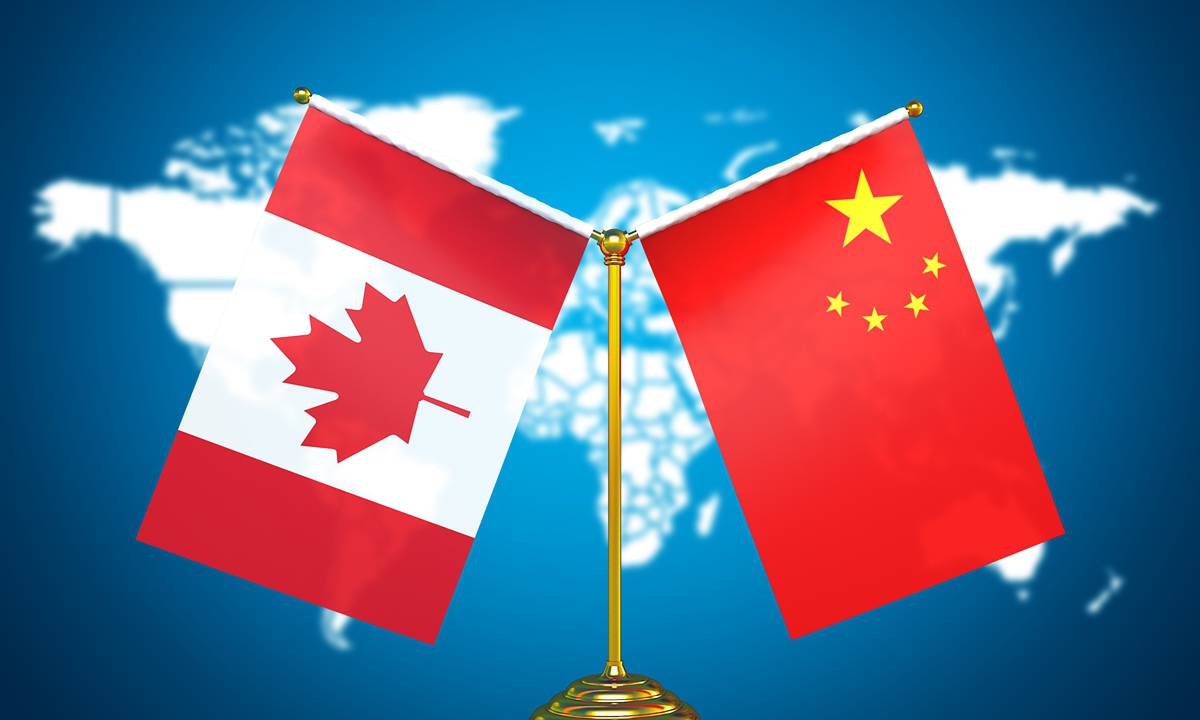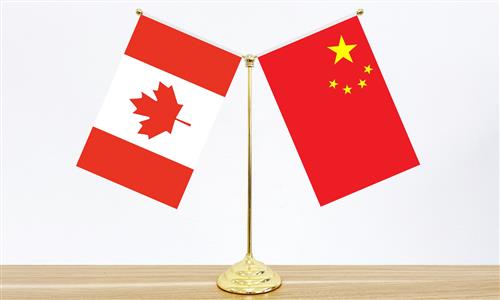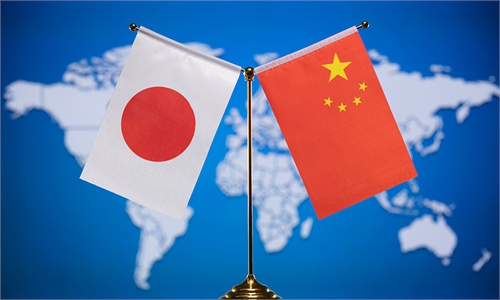
China and Canada Photo: VCG
Canadian Prime Minister Mark Carney, who won Canada's federal election at the end of April, unveiled his new cabinet on Tuesday. While the Liberal Party's continued tenure in office is secured, the next four years will be challenging for the Carney administration. A top priority will be restoring public confidence in the country and government, particularly in the economic and diplomatic spheres. The new government must reconsider how, in the context of great power competition, to leverage Canada's position as a middle power to manage relations with major countries and secure opportunities for development. China-Canada relations are undoubtedly a key issue requiring careful consideration by the Canadian side.Canada's relationship with China is significantly shaped by the pressures stemming from its high reliance on the US and the Justin Trudeau administration's less-than-mature diplomatic conduct.
As the China-US competition intensifies, the diplomatic space for middle countries, including Canada, has been repeatedly squeezed. Many nations are oscillating between choosing sides and hedging their bets. Over the past decade, the Trudeau administration was caught in a strategic dilemma regarding its relationship with major powers. This lack of maturity in diplomatic practice has dragged Canada into the maelstrom of great power competition, diminishing its strategic flexibility and autonomy as a middle power.
China and Canada enjoy a strong complementarity in the economic and trade sectors, and the future cooperation prospects are broad. In recent years, China-Canada economic and trade relations have shown a relatively strong momentum, and cooperation between the two countries has continued to deepen. Statistics show that the trade volume between the two countries totaled 133.3 billion Canadian dollars (about $98.642 billion) in 2024, increasing by 6.1 percent year-on-year. China's imports from Canada amounted to 66.8 billion Canadian dollars, up by 7.7 percent year-on-year. Simultaneously, the global energy transition has also made clean energy cooperation a new strategic fulcrum in China-Canada relations.
Different from the US-Canada relationship, which has historical roots and current dependencies but is gradually being undermined by unilateralism, the China-Canada relationship, which has no historical conflicts but a solid foundation and promising prospects for development, may become a bilateral relationship worthy of attention in Canada's active promotion of its diversification strategy.
More importantly, improving relations with China is also the voice of the Canadian people. A survey conducted by the Canadian think tank "Institute for Peace and Diplomacy" shows that the proportion of Canadians who support strengthening economic and trade cooperation with China has increased from 5 percent in 2022 to 26 percent this year. It may become voices that the Carney administration will refer to when handling relations with China in the future.
At present, under the pressure of the US' unilateralist policies, the new Canadian government may intensify its efforts to promote a diversified trade and diplomatic strategy. After a long period of obstruction, China-Canada relations may also witness a "window period" for improvement brought about by the policy changes of the new government. The Carney administration might reevaluate the significance of China-Canada relations, establish a clearer and more pragmatic perception of China, stop placing national interests behind the illusory values of diplomacy, and avoid missing potential development opportunities.
Many differences exist between China and Canada, but the development of the bilateral relationship should not be dominated by these differences. Seeking common ground while preserving differences and respecting each other should be the keynote of bilateral relations. Properly handling their differences, expanding their common interests, and deepening practical cooperation will bring tangible benefits to the people of both countries and provide a model for the world to break the deadlock of unilateralism.
The author is a research fellow with the Center for Canadian Studies, Guangdong University of Foreign Studies. opinion@globaltimes.com.cn



